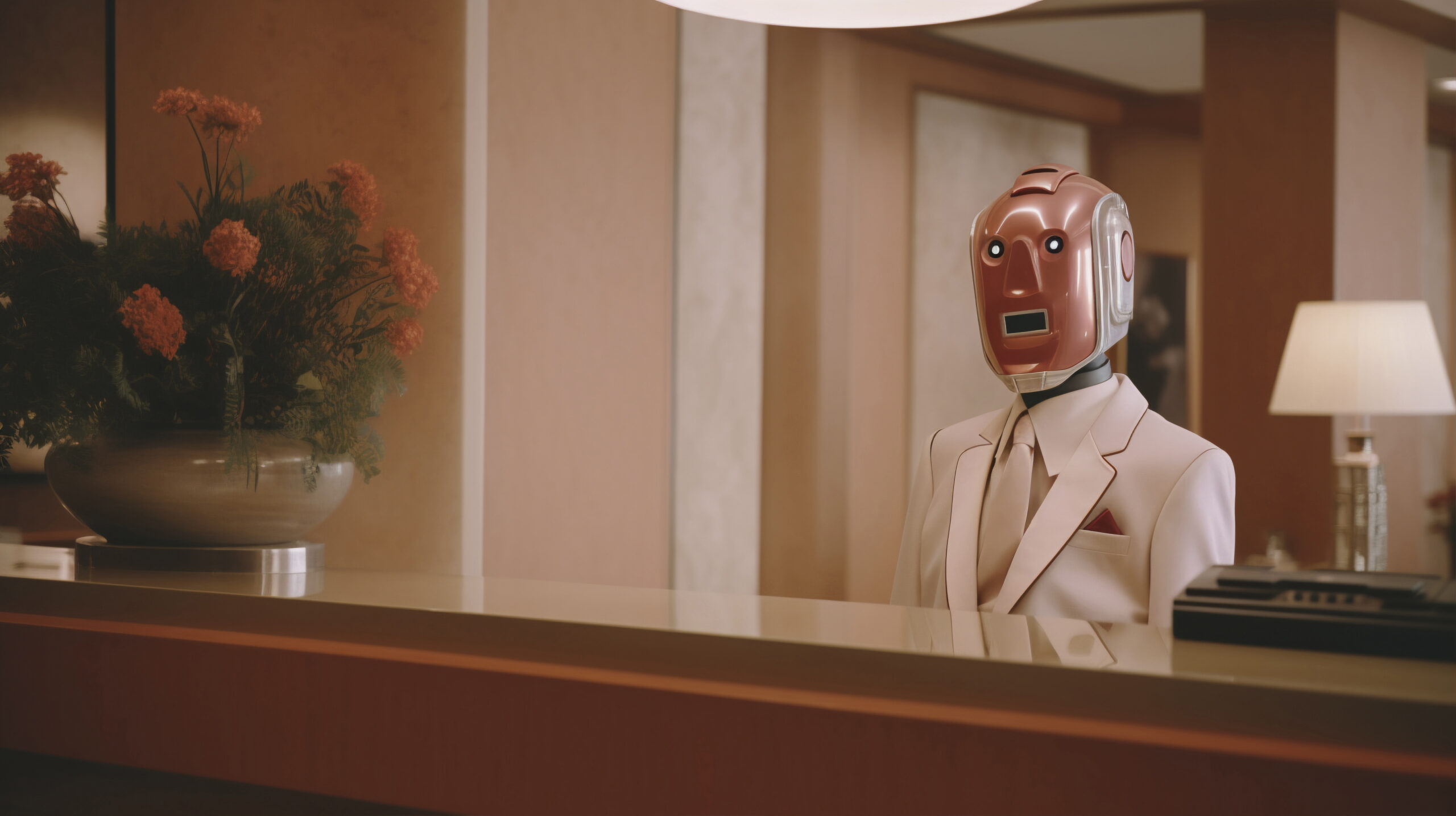1. The Future of Hospitality Beyond the Building
Entering the Era of Digital Ecosystems
In the past, innovation in hospitality was mostly focused on improving existing functions, like faster check-ins or better channel management. But now, with the emergence of generative AI, there’s an opportunity to completely redefine the “hotel” and how its services are delivered. A hotel is no longer just a building; it becomes part of a digital ecosystem.
2. The New Generation of Artificial Intelligence: Beyond Speed, a Catalyst for Transformation
From Mechanical Processes to Human Experience
Richard Walter, the founder of Mews, emphasized at the HITEC 2025 conference that large language models (LLMs) don’t just make tasks faster; they change the way those tasks are done. For example, check-in transforms from a repetitive process into a personalized and warm experience.
3. The End of Standardization; The Beginning of Personalization at Scale
From General Services to a Unique Experience for Each Guest
Walter predicts a future where each guest will have a completely personalized experience, from minibars stocked with their favorite drinks to activity suggestions tailored precisely to their tastes and interests. This level of personalization, once only available in luxury hotels, is now accessible to all with the help of artificial intelligence.
4. Beyond the Room: Managing the Local Experience
The New Role of Hoteliers in the Heart of the Community
Future hoteliers will no longer just be managers of a building; they will be leaders of local experiences. By connecting to urban amenities, local culture, and indigenous experiences, they take the stay beyond the rooms and transform it into a local adventure.
5. Synergy Between Human Workforce and Artificial Intelligence
The New Human Resources Model in the Hospitality Industry
In the future, the human workforce won’t be eliminated; instead, it will be enhanced by artificial intelligence. An employee will be able to perform multiple roles simultaneously, while the necessary information is provided instantly through AI. According to Walter: “It’s like we’ve given each employee a suit of armor.”
6. The End of the Traditional Duality in Hospitality Systems
A Flexible Ecosystem Instead of Limiting Systems
Traditional models were either all-in-one or best-of-breed. Walter suggests moving away from this duality and instead using a flexible, connected ecosystem. Each hotel, depending on its location and needs—whether urban or coastal—can freely combine the technologies it requires.
7. Humanizing Technology: The Key to Future Success
Chatbot or Human? It doesn’t matter; what matters is the feeling of being chosen.
Technology should serve humanity. It doesn’t matter whether the guest is interacting with a chatbot or a real receptionist; what matters is the feeling of being seen, respected, and chosen. This is what makes guests loyal.
8. Adotel’s Perspective: Balancing Automation and Hospitality
A Combination of Technological Power and the Human Heart
Adotel has paved the way for hotel automation with tools like Channel Manager, an online booking engine, smart reports, and integration with over 130 sales channels. However, the philosophy behind these tools is to preserve the essence of hospitality and empower the human workforce. The future of hospitality requires both intelligence and heart.

